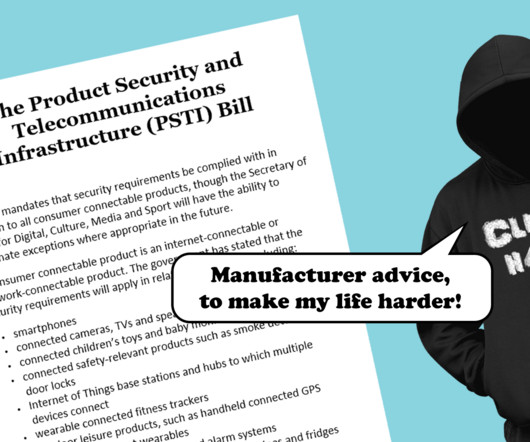8 Ways to Protect Yourself against Scams on Black Friday and Cyber Monday
Adam Levin
NOVEMBER 23, 2020
Legitimate retailers are never going to make you dig for the deals, so they aren’t going to put the good stuff in an attachment. It’s not just attachments from retailers, but also from shipping companies or financial institutions. Credit cards come with consumer protections that limit your liability if your card information is stolen.












Let's personalize your content